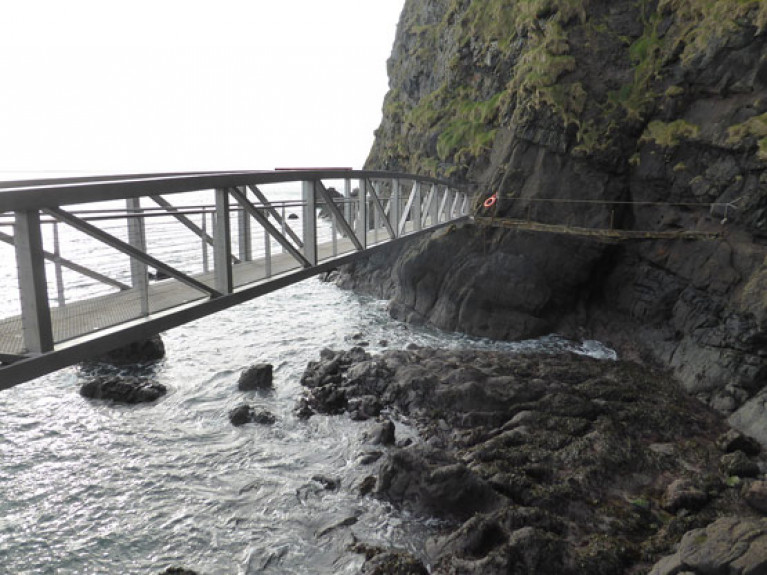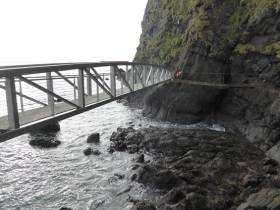Displaying items by tag: The Gobbins
Gobbins Cliff Path Reopening With Covid-19 Safety Upgrades
Co Antrim’s famous coastal path at The Gobbins is set to reopen next week on Tuesday 1 September. months after it was closed in the initial wave of coronavirus restrictions in Northern Ireland.
As RTÉ News reports, the cliff path — which was restored in 2015 after being closed for decades — has had a number of safety upgrades to allow for social distancing and hygiene standards to fight the spread of coronavirus.
Prebooking is also essential to allow for proper management of the popular Islandmagee attraction, renowned for its white-knuckle series of rugged steps, tunnels, caves and bridges.
NI Coastguard Teams In Gobbins Cliff Rescue Exercise
#Coastguard - Northern Ireland coastguard teams have taken part in a major rescue exercise The Gobbins in Co Antrim ahead of the cliff path's reopening this May Day weekend, as the Belfast Telegraph reports.
As many as 50 volunteers from Kilkeel, Newcastle, Ballycastle, Coleraine and Portmuck carried out various cliff rescue exercises, including a mock evacuation of multiple casualties.
The path has undergone a number repairs after significant storm damage forced its closure in December, just months after the 'white-knuckle' attraction welcomed its first visitors since the 1950s.
The Belfast Telegraph has more on the story HERE.
Woman Rescued From Islandmagee Cliff
#Rescue - A woman is in stable condition in hospital after she was rescued from a sea cliff in Islandmagee on Tuesday (27 October) an operation that "wasn’t straightforward", as the News Letter reports.
It's believed the woman had been walking along the top coastal path when she got into difficulty late on Tuesday evening.
She was airlifted from the site by helicopter tasked from Scotland after being stabilised by paramedics.
The incident comes just weeks after emergency services rushed to the aid of an elderly man who fainted on the newly reopened Gobbins cliff walk in the same area.
The new cliff path has been hailed by the Guardian as "a reboot of a magnificent feat of engineering that originally opened in 1902", with local musical hero Michael Bradley of the Undertones writing about its heart-stopping mix of beauty and danger.
Man Faints On Newly Reopened Gobbins Cliff Path
#CoastalNotes - Emergency services rushed to the aid of an elderly man who fainted on the new cliff walk at The Gobbins in Co Antrim on Thursday (3 September).
As BelfastLive reports, the 79-year-old collapsed half-way along the "white-knuckle" coastal path that recently welcomed its 1,000th visitor since reopening last month for the first time since the 1950s.
The path was closed during the incident as the man recovered enough to walk away with the aid of council staff and local fire fighters. He was subsequently pronounced fit and healthy by paramedics at a waiting ambulance.
Mid and East Antrim Council has warned that the dizzying Gobbins path requires a reasonable level of fitness to traverse its series of rugged steps, tunnels, caves and tubular bridges that are not for the faint-hearted.































































